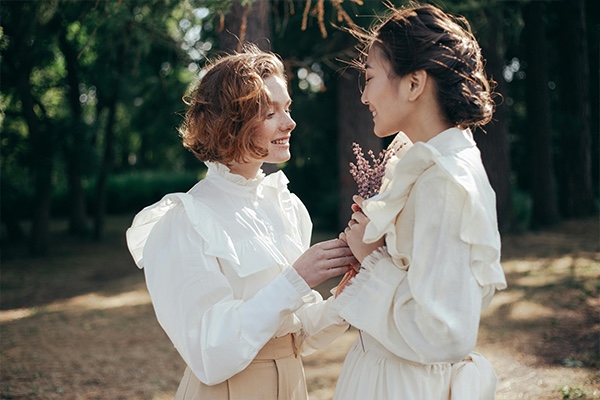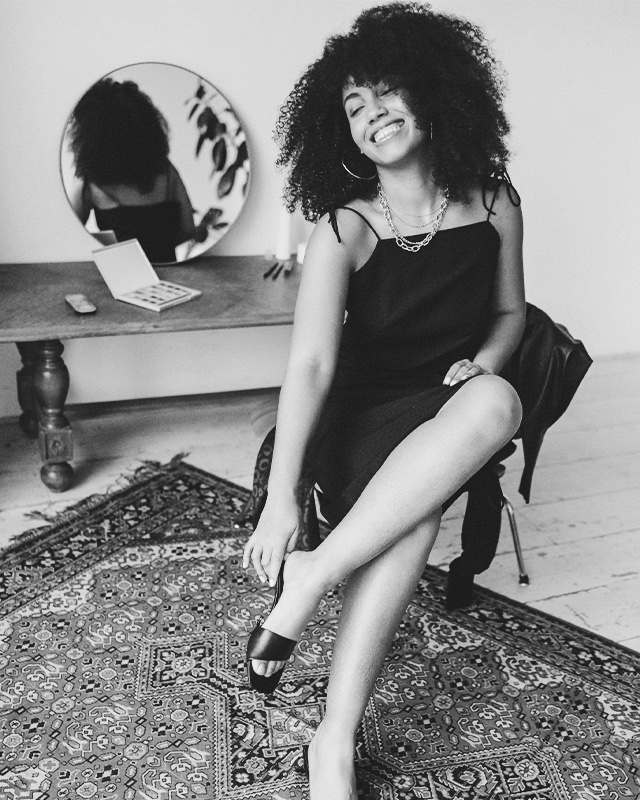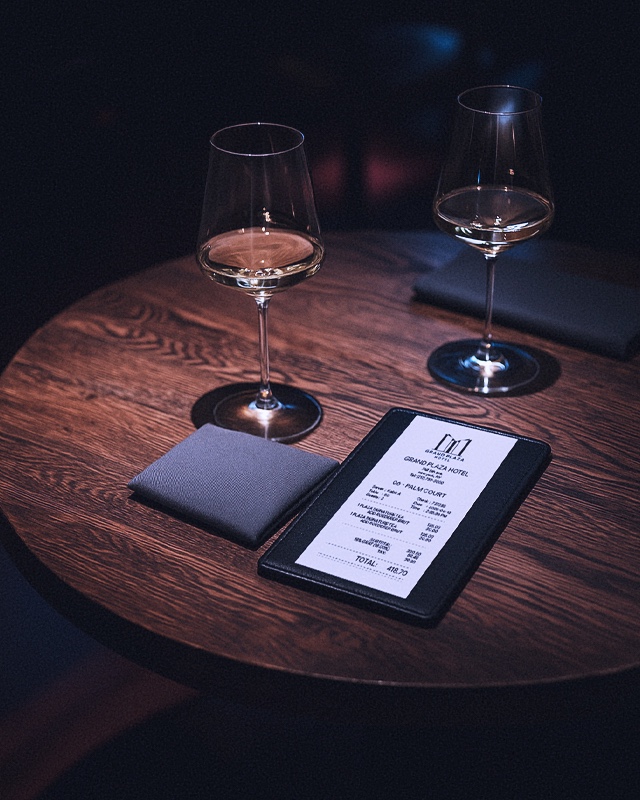What’s the One Question You Should Always Ask on a First Date
You’ve probably seen the Orange Peel Theory floating around social media: offer your date an orange and see if they’ll peel it for you. If they do, they’re thoughtful and invested. If they don’t, it’s a red flag. Sounds poetic, right? Well, yeah, but reality is murkier.
For someone whose love language is “doing,” peeling an orange might feel romantic, instinctive, even. But that gesture might miss the mark for someone who connects through conversation, physical closeness, or shared humor. Declining it doesn’t mean they don’t care; it just means they show affection differently. The real test isn’t whether someone peels the orange. It’s whether they’re curious enough to figure out what your version of care looks like—and willing to meet you there. In other words: what’s your orange?
A great first date doesn’t depend on weather, wine, or whether you remembered to Google your date’s job title beforehand. What matters is how quickly you can bypass the generic and get to something real. And there’s one question that can do more to reveal long-term compatibility than a dozen perfectly timed compliments, orange-peel tests, or rapid-fire banter ever will.
“What feels like effort to you?”
That’s it. That’s the question. Not “What do you do?” or “Where do you see yourself in five years?” Not even “What are you looking for?” (which too often triggers a preloaded answer, not an honest one). The effort question cuts through all that. It’s disarming. It’s revealing. It turns a date into a discovery.
It even comes with a built-in follow up: “And what never feels like effort?” But don’t get ahead of yourself. Start with the first part. What this question does—What feels like effort to you?—is to invite the person across from you to tell you, directly and without performance, how they love best.

Why This Question Works
Effort is a form of currency in relationships—arguably the only one that matters once attraction settles into rhythm. In behavioral science, effort is also a cue: we unconsciously assess people not just by how much they do, but what they choose to do effortlessly for the right person. This question directly addresses that instinct, without asking someone to explain their dating philosophy.
”Having high standards means asking the right questions,” according to dating mindset strategist for Seeking, Emma Hathorn. “It demands for you to be direct, because you have what you both need and want from a partner already in mind. It becomes a matter of finding it. Understanding where someone places value is invaluable, because it gives you something concrete to assess and reflect on.”
What the Answers Actually Tell You
Responses to this question reveal internal architecture. You’re not looking for the correct answers but for rhythm. Someone who says, “Cooking dinner for someone is easy—remembering birthdays is hard,” might be incredibly present in the moment but less wired for long-term calendar-driven attentiveness.
Someone who finds conversation easy but small acts of service draining may thrive in intellectually driven connections but resist the expectations of traditional caretaking roles. These aren’t red flags. They’re reality checks. You’re asking: How do you love? How do you show up? And what does that say about how you’d show up for me?
Effort, Compatibility, and the Emotional Cost Curve
Modern dating often mistakes grand gestures for emotional availability. But the truth is more subtle. In cognitive psychology, there’s something called the “effort discounting curve”—the idea that the more energy a person expends for little perceived payoff, the faster they emotionally withdraw. We see this play out constantly in dating: one person plans every date, sends every follow-up text, initiates every check-in, and finally burns out.
By understanding what effort means to someone, you’re gauging compatibility and protecting your emotional reserves. If their ease is your exhaustion, that’s a problem. If your natural way of expressing care feels invisible to them, that’s another. This question helps you see that early.
Breaking the Ice Without Breaking the Flow
If you’re worried about how to ask the question without sounding like you’re conducting a podcast interview, try this: “I’ve been thinking about the way some things feel effortless with the right person. For example, I could spend two hours planning a date, and it doesn’t feel like work at all—but returning a text in five minutes feels like pressure. What’s that thing for you—what feels like effort?”
This single question unlocks something that most first dates miss: emotional velocity. When two people are honest about what they naturally give, what they hesitate to do, and what they hope someone else will notice without asking, the conversation stops performing and starts connecting. Oh, and delivery matters. Keep it light and easy. You’re inviting them into a conversation, not cornering them into a confession.

What It Unlocks
There’s power in knowing what your date gives freely—and what costs them. But the bigger insight is what it tells you about yourself. You begin to map your own when you hear someone describe their easy and hard. You ask yourself: Would I feel nourished by that? Would they notice mine? Are we speaking different love languages, or finally syncing up?
It reframes the first date as something more than an audition. It becomes a mutual decoding—a chance to assess resonance, not just resume. You learn what partnership might look like before either of you has to name it. You understand what they’re willing to do and what they feel joy in doing. That distinction is everything.
FirstDate Final Thought: Upgrade Your First Dates & Ask Smarter
Forget surface-level interview questions. Ditch over-rehearsed anecdotes and follow-the-script flirtation. Ask the question that shows you both how you move through intimacy, generosity, and attention. And listen as if the answer matters, because it does.
Want to make your next first date exponentially better? Upgrade your questions. Start with this one—and let everything else unfold from there.








